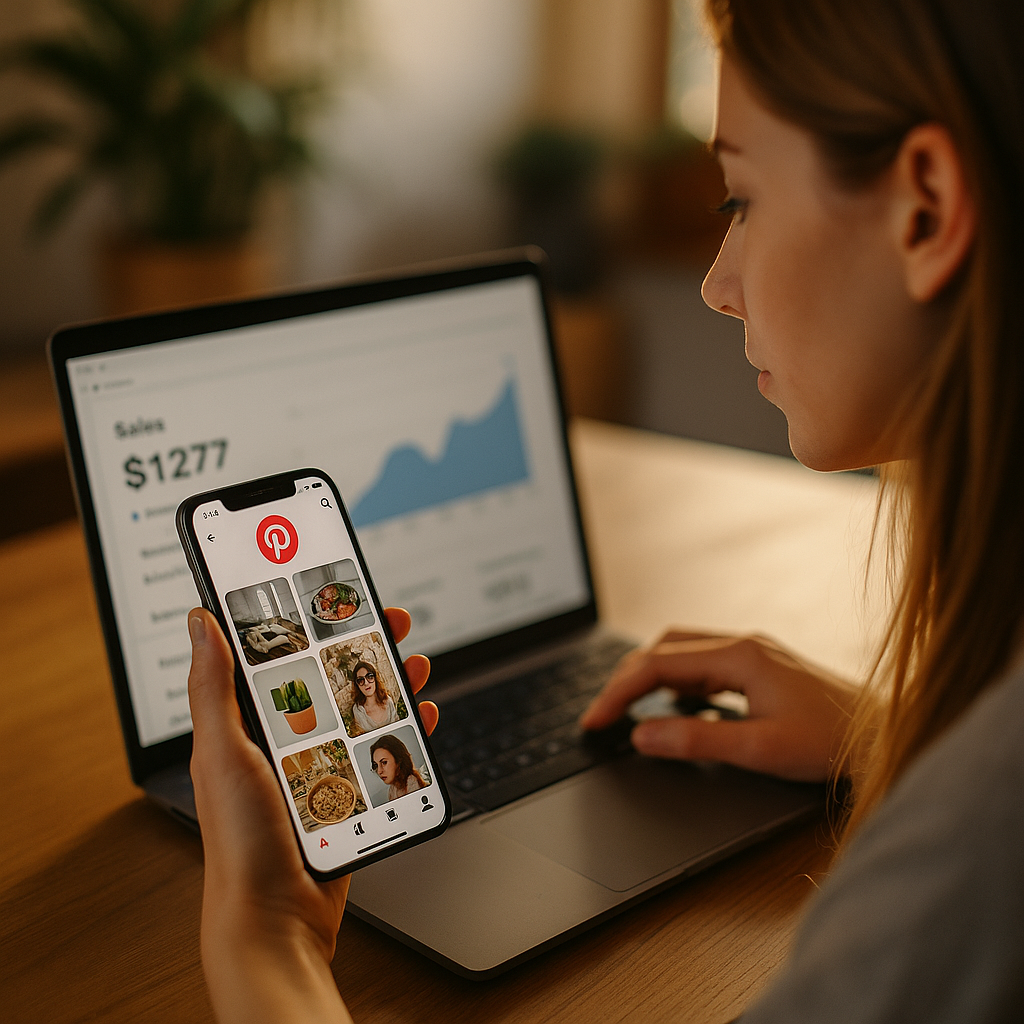Pinterest Influencer Playbook For Ecommerce—Unlock the power of this visual platform to drive sales and awareness in your online store. Pinterest influencers don’t just inspire, they shape buyer behavior daily. Learn how to leverage their reach and expertise to grow your ecommerce brand faster than your competitors are ready for.
Why Pinterest Influencer Marketing Drives Ecommerce Success
Using Pinterest influencer marketing isn’t just about brand exposure—this platform is uniquely structured to turn inspiration into measurable sales. According to recent Pinterest business reports, 83% of weekly users have made a purchase based on Pins they saw from brands or influencers. The visual nature of Pinterest encourages product discovery and aspirational browsing, making it a goldmine for ecommerce success. Product Pins can lead users directly to your online store with a single click, shrinking the path from inspiration to transaction. Influencers accelerate this process by delivering authentic endorsements that Pinterest’s audience trusts.
How to Find and Partner With the Right Pinterest Influencers
Identifying the best Pinterest influencers for your ecommerce brand ensures authentic reach and sales conversion. Start by analyzing influencers’ niche authority, follower engagement rates, and pin styles. Pinterest creators with highly curated boards in your product category (for example, “2025 Minimalist Decor Ideas”) will resonate with a more targeted audience. Use tools like Pinterest Creator Search and third-party platforms to assess analytics, ensuring that any partnership offers true value. Make outreach personal and collaborative, focusing on long-term relationships over quick campaigns—many top ecommerce brands now co-create Pin collections or exclusive product sets with trusted influencers.
Creating Compelling Pin Content With Influencer Collaboration
Successful Pinterest influencer campaigns rely on engaging, actionable content. Encourage influencers to showcase your products with rich storytelling—using step-by-step guides, mood boards, or video Pins showing products in use. Data shows that video content on Pinterest drives three times higher engagement rates compared to static images. Provide creative freedom, but supply guidelines for your brand’s voice, call-to-action, and use of shoppable Pins. Ideal influencer content blends subtle branding with informational value, inviting users to save and share. Regularly monitor Pin performance, and offer constructive feedback to optimize future collaborations.
Optimizing Ecommerce Conversions from Pinterest Influencer Traffic
Driving Pinterest influencer traffic to your ecommerce site isn’t enough—you must expertly turn those visits into sales. First, ensure your landing pages are mobile-optimized and visually aligned with your Pinterest content, as 85% of Pinterest use happens on mobile devices. Add clear, concise product descriptions and high-quality images. Employ the latest features like Pinterest’s “Shop the Look,” which enables influencers to tag multiple products in one Pin, streamlining the purchase process. Use UTM tracking links to attribute traffic and conversions directly to each influencer, and share real-time results. Enhanced reporting not only proves campaign ROI but also builds trust and transparency with your influencer partners.
Measuring ROI and Scaling Your Pinterest Influencer Strategy
A data-driven approach sets the best Pinterest influencer playbooks apart. Set specific KPIs for each campaign—such as Saves, Clicks, and attributed checkouts. Leverage Pinterest Analytics and platform integrations to monitor these metrics. Check your conversion funnel to pinpoint where users engage or drop off, then iterate your influencer content and targeting. Scaling up isn’t just about more influencers. Optimize with micro-influencers in hyper-relevant segments and run A/B tests on content types. Brands that continuously refine their Pinterest influencer strategy outperform competitors by adapting to evolving trends on the platform.
Compliance, Authenticity, and Building Long-Term Influence
Staying compliant with Pinterest’s sponsored content rules and local advertising guidelines is critical. Insist on transparency—each influencer’s sponsored Pins should be clearly labeled. Authenticity is your currency: followers flock to influencers who genuinely use and endorse your products. Support your partners with exclusive early access, product insights, and ongoing collaboration. Building a core group of loyal Pinterest influencers creates sustained visibility and trust for your ecommerce brand in 2025 and beyond.
Conclusion
The Pinterest influencer playbook for ecommerce is about strategic partnerships, irresistible content, and relentless optimization. By connecting your brand with authentic creators, you turn visual discovery into revenue. Start leveraging these proven tactics today and watch your ecommerce growth accelerate—one inspired Pin at a time.
FAQs About the Pinterest Influencer Playbook For Ecommerce
-
Q: How do I find the right Pinterest influencers for my ecommerce brand?
A: Focus on influencers whose boards align with your product category, and analyze engagement rates rather than just follower size. Use Pinterest’s Creator Search tool and third-party analytics to identify authentic creators.
-
Q: What content type performs best for Pinterest influencer collaborations?
A: Video Pins and visual storytelling, such as step-by-step tutorials or curated lookbooks, typically deliver higher engagement and save rates compared to static Pins.
-
Q: How can I track sales from Pinterest influencer campaigns?
A: Use UTM tracking links and Pinterest Analytics to attribute traffic and sales to each influencer. Integrate your ecommerce platform with Pinterest for seamless reporting.
-
Q: What are the key compliance rules for sponsored content on Pinterest?
A: Sponsored Pins must be clearly labeled as such, and campaigns must follow both Pinterest’s advertising guidelines and any relevant local regulations to ensure transparency and trust.
-
Q: Can Pinterest influencer marketing work for small ecommerce brands?
A: Absolutely. Micro-influencers, who often have higher engagement rates in niche segments, can deliver value and help smaller brands achieve significant reach and conversions on Pinterest.
